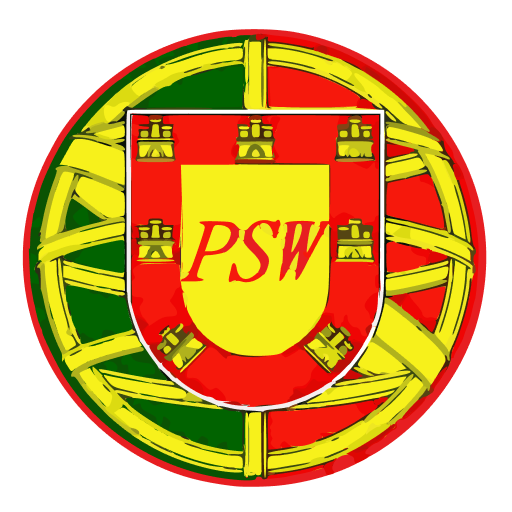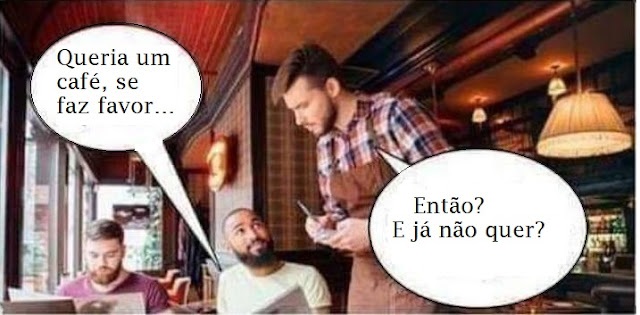In English we often use the verb ‘to have’ when we are asking for things:
– May I have the chicken please?
In Portuguese when requesting things we can do it a number of ways, we do not use the verb to have or to be able to though. Here is an example below of a common mistake
– Posso ter o frango, se faz favor?
Although you would be understood it is not really the correct way to make a request or to ask for something.
Some people make requests without even using the verb and many books teach this to help you get around it.
O frango, se faz favor – The chicken please
Um café, se faz favor – a coffee please
Remember! It is always nice to say ‘please’. 🙂
It is more common to ask for something using the verb,
querer – to want.
Quero o frango, se faz favor – I want the chicken please
Ela quer comer costeletas com batatas fritas – she wants chops with chips.
Queremos dois cafés e dois pastéis de nata, se faz favor – we want two coffees and two custard tarts please
Literally translated this means – ‘I want…she wants…we want… It can seem somewhat abrupt, but it is acceptable in Portuguese. Nobody will get offended. The alternative is:
Queria o frango, se faz favor.
This translates as I would like, even though we are not using the verb to like.
How is that?
Well, literally translated it means : –
I would want, I used to want or I wanted – I know! So many different meanings – but it actually makes speaking easier. I will explain! (just a tad)
Imagine you wanted coffee but there isn’t any. You could say:
Eu queria café, mas não há! – I wanted coffee, but there isn’t any!
Todos os dias eu queria falar com ele, mas ele não quis falar comigo – Everyday I used to want to speak to him, but he didn’t want to speak to me.
Let’s look at the image above. The guy sitting down is actually saying:
– I wanted a coffee
and the waiter is saying:
– And now you don’t?
When you are being served in Portugal they might joke about this, and now you won’t get caught out!
I would want doesn’t make much sense to us used like this, I have to admit, but when we translate it as I used to want, or I did want, it makes more sense.
This form of the verb is called the pretérito imperfeito or simply the imperfect past tense.
It is one of the most common used forms of the verb changes.
In every day speech we often speak in the past, and more often than not we speak in the imperfect past.
Eu comia bolos todos os dias – I used to eat cakes every day
Ela via muita televisão – she used to watch the TV a lot.
Eu queria comprar gasolina mas já não havia em lado nenhum! Tive de ir a Espanha!
I wanted to get petrol but there was no longer (any) anywhere! I had to go to Spain
Listen to locals if you are in Portugal, news items online or read articles in newspapers and see if you can spot the changes…If you are not in Portugal there are plenty of article, new etc. online.
Note: The verb to like is actually gostar.
To see the various verb conjugations click here
Don’t be overwhelmed by the amount of conjugations. In the initial phases we focus more on:
Presente – present
Pretérito imperfeito – imperfect past
Pretérito perfeito – perfect past.
Wouldn’t it be great to be able to communicate in Portuguese easily and without stress?
I have designed great online courses for people just like you. Easing you into the grammar and the pronunciation. These Courses come complete with short audio clips for easy learning. Get your course now! Online Courses.
This special offer ends in January 2024

